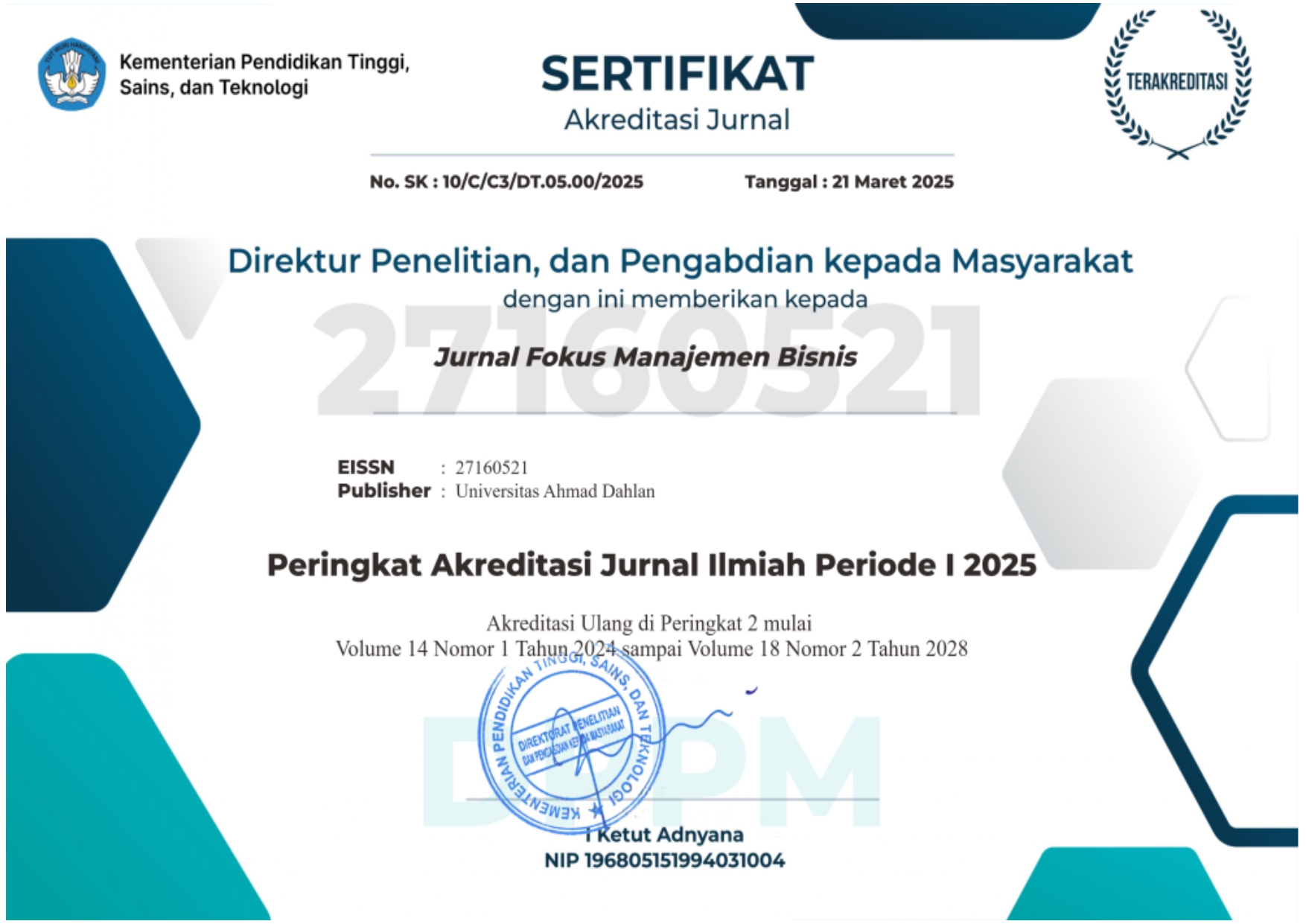PENGARUH RASIO CAMEL TERHADAP KINERJA KEUANGAN BANK PEMBANGUNAN DAERAH DI INDONESIA PERIODE 2010-2012
DOI:
https://doi.org/10.12928/fokus.v4i1.1343Keywords:
CAR, NPL, NPM, ROA, LDR, Financial PerformanceAbstract
This research is aimed to analyze and assess the effect of CAMEL ratio on the financial performance of Regional Development Banks in Indonesia. The independent variables used were Capital Adequancy Ratio (CAR), Non-Performing loans (NPL), Net Profit Margin(NPM), Return On Asset(ROA), and Loan to Deposit Ratio(LDR). Meanwhile, the dependent variable was financial performance viewd from the profit growth of the banks. Based on the result of the research, it is determined that partially, only ROA variable which significantly affects the Financial Performance of the Regional Development Banks in Indonesia. Whilst CAR, NPL, NPM, and LDR variables do not affect significantly on the financial performance of the Regional Development Banks in Indonesia. Simultaneous test result shows that CAR, NPL, NPM, ROA and LDR variables have an effect on the financial performance of the Regional Development Banks in Indonesia. The amount of coefficient of determination is 53.22%.Downloads
Published
2014-03-31
How to Cite
Marwati, D., & Sulistiyani, T. (2014). PENGARUH RASIO CAMEL TERHADAP KINERJA KEUANGAN BANK PEMBANGUNAN DAERAH DI INDONESIA PERIODE 2010-2012. Jurnal Fokus Manajemen Bisnis, 4(1), 1–8. https://doi.org/10.12928/fokus.v4i1.1343
Issue
Section
Articles
License
Authors who publish with this journal agree to the following terms:Â
- Authors retain copyright and grant the journal right of first publication with the work simultaneously licensed under a Creative Commons Attribution License that allows others to share the work with an acknowledgment of the work's authorship and initial publication in this journal.
- Authors are able to enter into separate, additional contractual arrangements for the non-exclusive distribution of the journal's published version of the work (e.g., post it to an institutional repository or publish it in a book), with an acknowledgment of its initial publication in this journal.
- Authors are permitted and encouraged to post their work online (e.g., in institutional repositories or on their website) prior to and during the submission process, as it can lead to productive exchanges, as well as earlier and greater citation of published work (See The Effect of Open Access).






